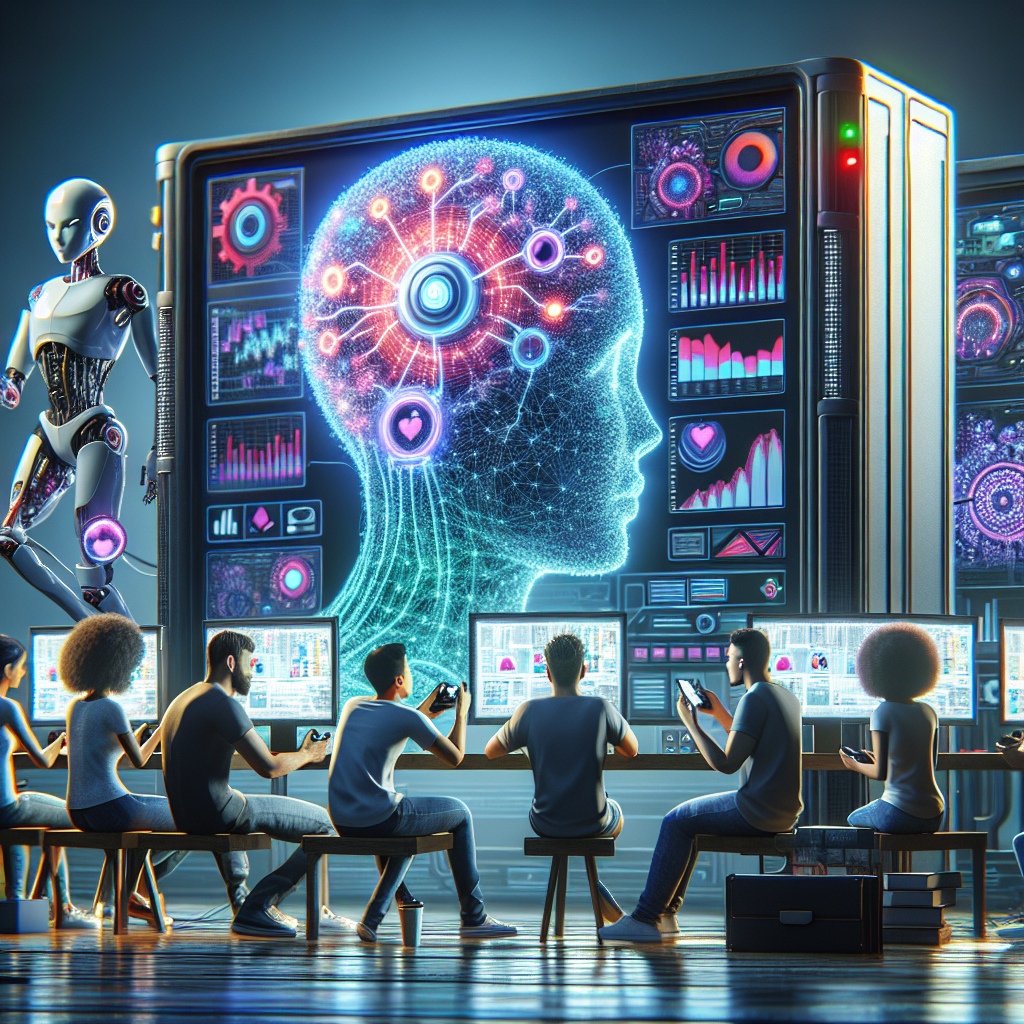Artificial Intelligence (AI) has been revolutionizing the gaming industry in recent years, and one of its key applications is in player retention. Player retention refers to the ability of a game to keep players engaged and coming back for more, ultimately leading to increased revenue for game developers. AI can play a significant role in enhancing player retention through personalized experiences, adaptive gameplay, and targeted marketing strategies.
Personalized Experiences
One of the ways AI can improve player retention is by offering personalized experiences to each player. By analyzing player behavior and preferences, AI algorithms can tailor the gaming experience to suit the individual needs of each player. This can include recommending specific game modes, levels, or challenges based on a player’s skill level or playstyle.
For example, AI can analyze a player’s in-game performance and suggest tips or strategies to help them improve. This personalized feedback can keep players engaged and motivated to continue playing, as they feel that the game is catering to their specific needs and interests.
Adaptive Gameplay
Another way AI can enhance player retention is through adaptive gameplay. AI algorithms can dynamically adjust the difficulty level of a game based on a player’s skill level and performance. This ensures that players are constantly challenged but not overwhelmed, leading to a more enjoyable gaming experience.
For example, if a player is struggling with a particular level or challenge, AI can automatically adjust the difficulty level to make it easier. On the other hand, if a player is breezing through the game, AI can ramp up the difficulty to keep them engaged and motivated.
Targeted Marketing Strategies
AI can also be used to improve player retention through targeted marketing strategies. By analyzing player data and behavior, AI algorithms can identify trends and patterns that can be used to create personalized marketing campaigns. This can include targeted promotions, discounts, or rewards that are tailored to each player’s preferences and playing habits.
For example, AI can identify players who are at risk of churning (i.e., stopping playing the game) and offer them special incentives to keep them engaged. This could include exclusive in-game items, discounts on virtual currency, or access to new content before it is released to the general public.
Overall, AI has the potential to significantly improve player retention in gaming by offering personalized experiences, adaptive gameplay, and targeted marketing strategies. By keeping players engaged and motivated, game developers can increase player loyalty and ultimately drive revenue growth.
FAQs:
Q: How does AI analyze player behavior and preferences?
A: AI algorithms can analyze player behavior and preferences through a variety of methods, including tracking in-game actions, monitoring playtime, and analyzing social interactions. By collecting and analyzing this data, AI can identify patterns and trends that can be used to personalize the gaming experience for each player.
Q: How does AI adjust the difficulty level of a game?
A: AI can adjust the difficulty level of a game by analyzing a player’s performance and skill level in real-time. If a player is struggling, AI can make the game easier by reducing the number of enemies, increasing the player’s health, or providing additional hints or tips. Conversely, if a player is performing well, AI can ramp up the difficulty by increasing the number of enemies, reducing the player’s health, or introducing new challenges.
Q: How can AI help prevent player churn?
A: AI can help prevent player churn by identifying players who are at risk of churning and offering them personalized incentives to keep them engaged. This could include special promotions, discounts, or rewards that are tailored to each player’s preferences and playing habits. By keeping players engaged and motivated, AI can help increase player retention and drive revenue growth for game developers.
In conclusion, AI has the potential to revolutionize player retention in gaming by offering personalized experiences, adaptive gameplay, and targeted marketing strategies. By leveraging the power of AI, game developers can keep players engaged, motivated, and coming back for more, ultimately leading to increased revenue and long-term success in the gaming industry.

